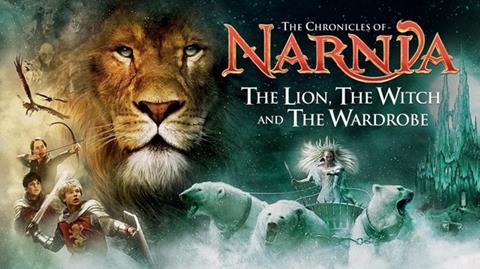On the 75th anniversary of the publication of The Lion, the Witch and the Wardrobe, Robin Barfield gives good reasons for Christian parents to read The Chronicles of Narnia with their children

75 years ago today The Lion the Witch and the Wardrobe was published for the very first time in the UK. His Chronicles of Narnia remain amongst the most popular children’s fiction and for good reason. Set in the world of Narnia with talking animals, dragons, portals where time is different, and the Christ-like figure of the lion Aslan, Lewis’ stories have captivated children for generations.
If you have never read them to your children, then I’m going to give you three reasons why you should. If you have read them, then I hope this article will encourage you to read them again!
1. They are exceptional literature
I have read every volume of the chronicles to each of my four children, sometimes multiple times. They never fail to grab me and excite me with incredible stories of great rescues, voyages, journeys, adventures and daring exploits. Every volume is a carefully crafted individual story which draws you in and carries you along. I have read a lot of bedtime stories to my children but very few give me the joy that Lewis’ books give on rereading. I regularly notice extra details and get excited even when I know the ending. The Chronicles of Narnia are a masterclass of storytelling.
Lewis was an expert communicator as well as keen observer of people
I will confess, I am not a fan of The Horse and His Boy, but I know many others for whom this is their favourite. The Voyage of the Dawntreader is my personal highlight, particularly as they reach the edge of the world and say goodbye to the mouse, Reepicheep. There is a beauty in that scene which always moves me. And unlike The Lord of the Rings, they are not difficult to read.
2. They lead us to see more clearly
Our children are growing up in a materialist world where they are conditioned to only consider what they can see and hear and touch and feel and lack awareness of any unseen realm. Great fantasy takes the reader into other worlds and demonstrates that other realities are possible. Great fantasy stretches the imagination muscle of the child to prepare them for deeper gospel realities.
The Chronicles introduce the child to theology and thought patterns which makes the gospel more reasonable and obvious
Lewis’ stories do this in a deeply Christian way. The Chronicles explore the richness of a Christian reality, a Christian world, and introduce the child to theology and thought patterns which makes the gospel more reasonable and obvious.
Sometimes this is not always immediately discernible; Michael Ward’s Narnia Code helps to piece together the volumes as a whole. But that’s the joy of great literature, we are left to work it out for ourselves. It does not preach at us but gently shows us what is possible.
3. They are psychologically incisive
I could spend all the words I have here just quoting all the incisive sections of the novels – where Lucy is told that Aslan is not safe, but he is good; where Aslan grows as Lucy grows; where Eustace’s transformation into a dragon traps him then redeems him. Lewis’ gift was that he understood the human condition so well. Whilst the stories are set in 1940s middle class English culture, and sometimes that is very obvious, the observations of people allow them to be universal in the way of all great literature.
The Chronicles of Narnia are widely quoted and for good reason. Lewis was an expert communicator as well as keen observer of people from a Christian viewpoint. Why not pick up a copy and try a bedtime story this week.
“One day you’ll see him and another you won’t. He doesn’t like being tied down—and of course he has other countries to attend to. It’s quite all right. He’ll often drop in. Only you mustn’t press him. He’s wild, you know. Not like a tame lion.”
This article was first published in November 2023 and has been republished for the 75th anniversary of the publication of The Lion, the Witch and the Wardrobe.


































